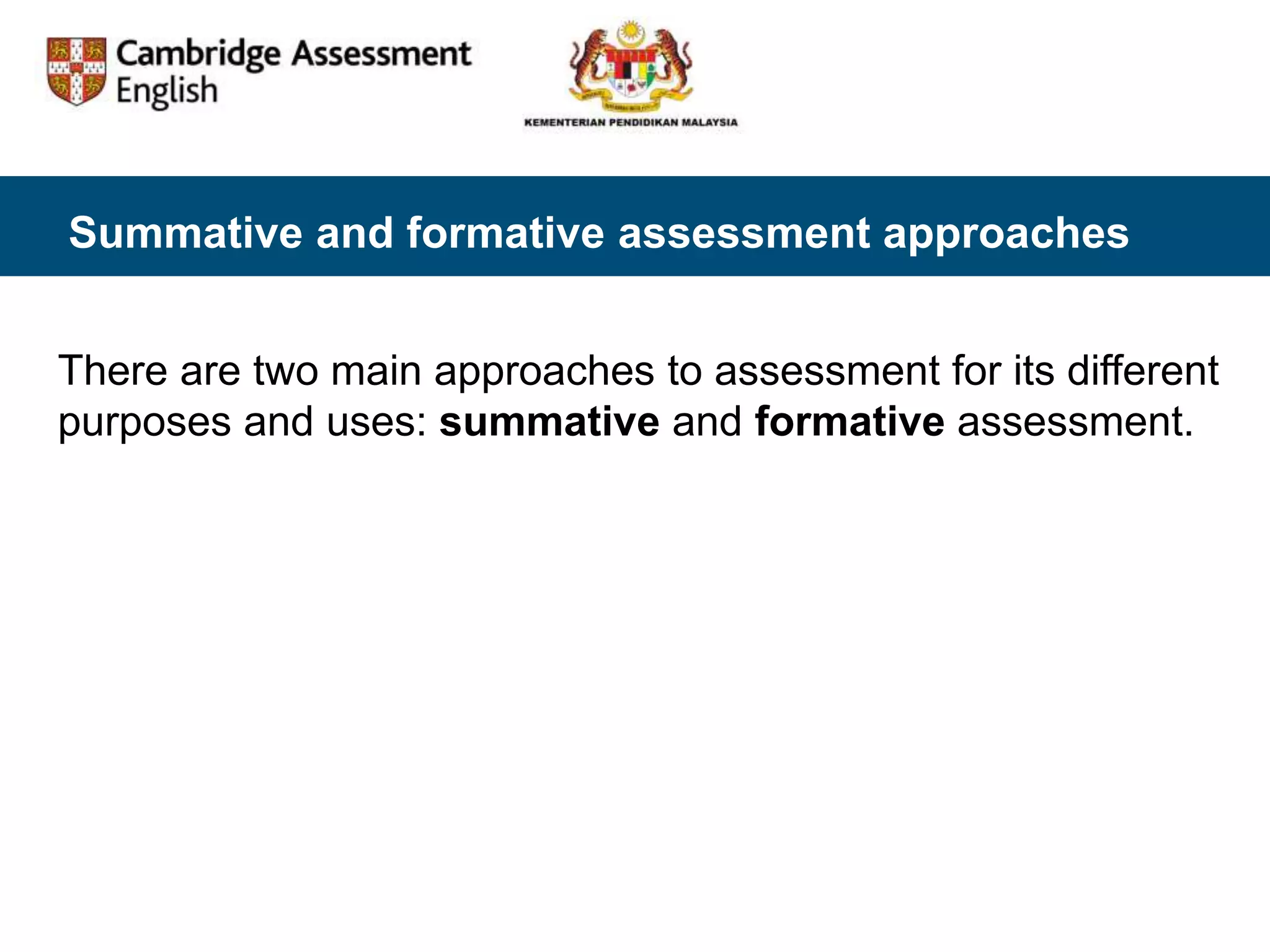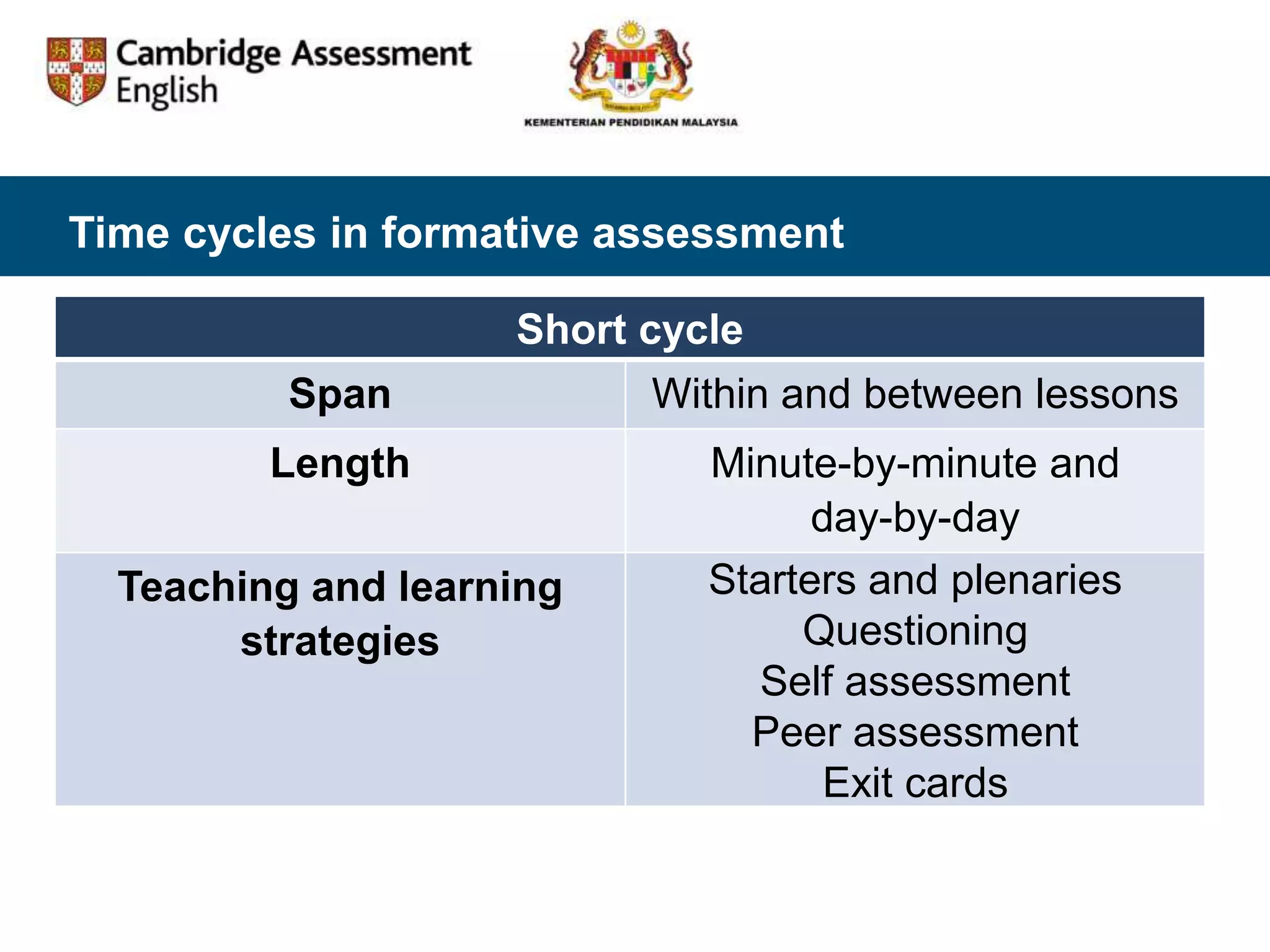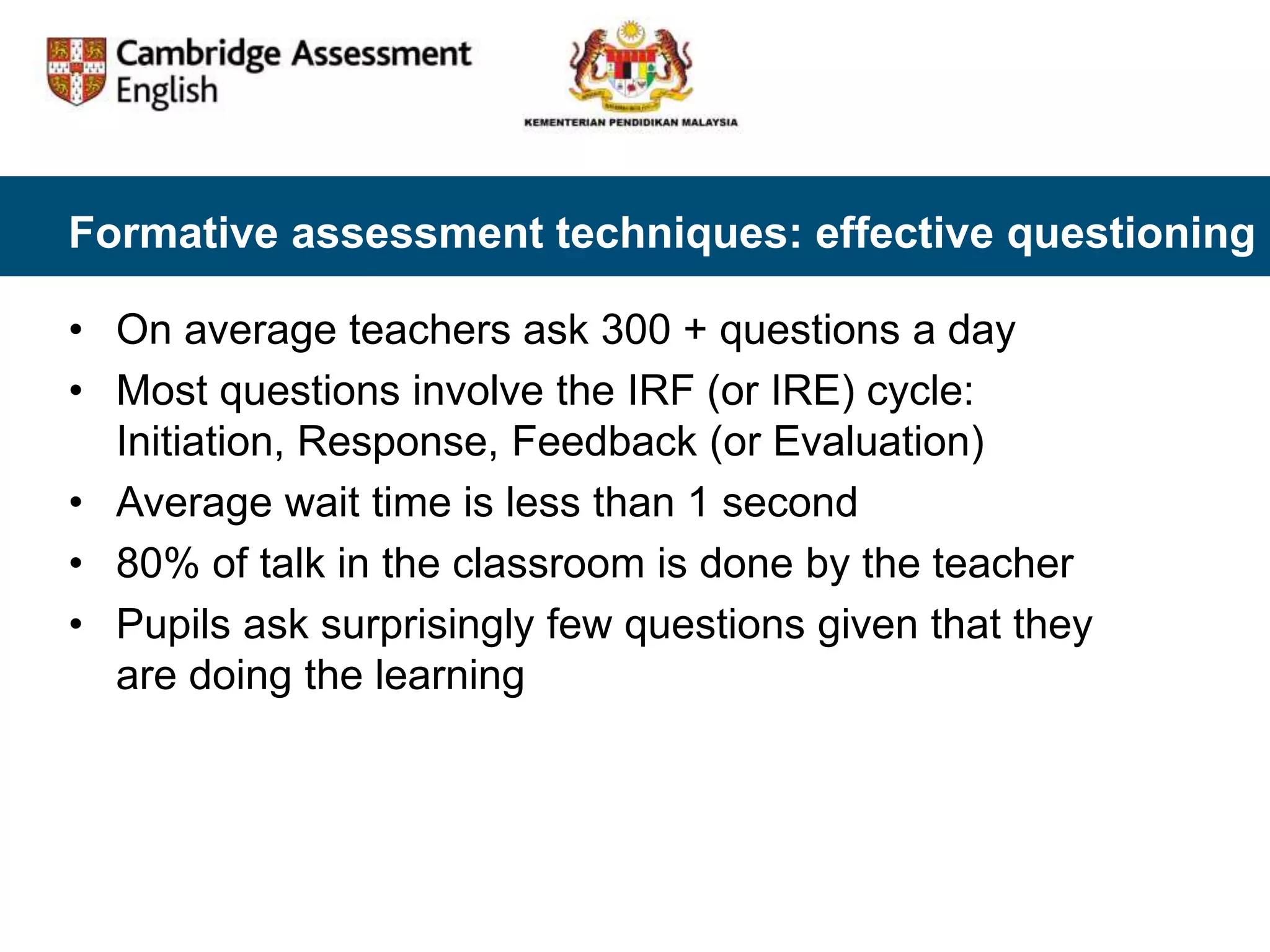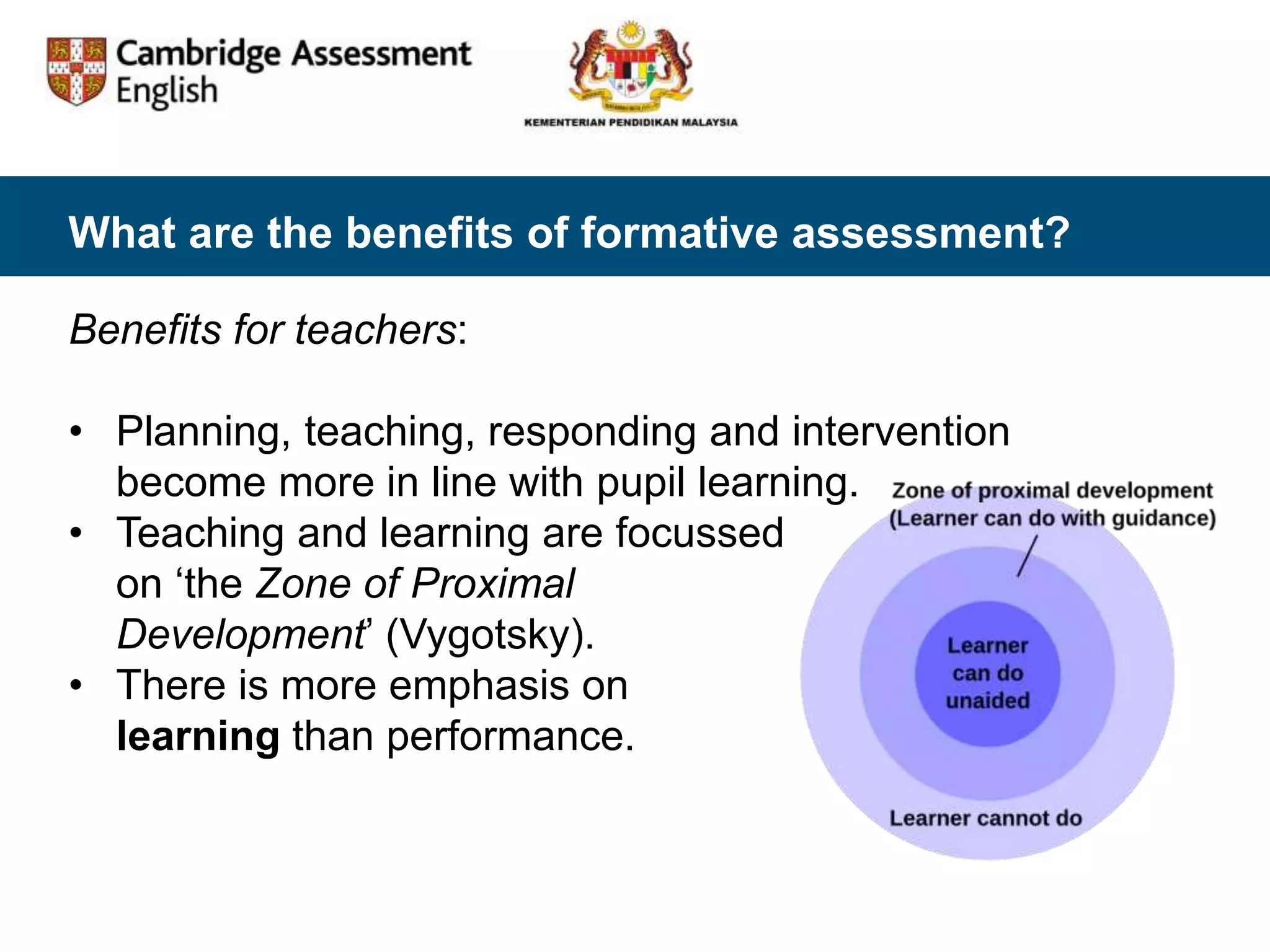The document discusses formative assessment and its key principles and practices. Formative assessment involves making judgements about pupils' knowledge and abilities based on evidence, in order to inform next steps in learning. It focuses on improving learning through techniques like questioning, feedback, peer and self-assessment. The goals are to understand pupil development and decide how to progress, which helps both teachers and pupils.

































